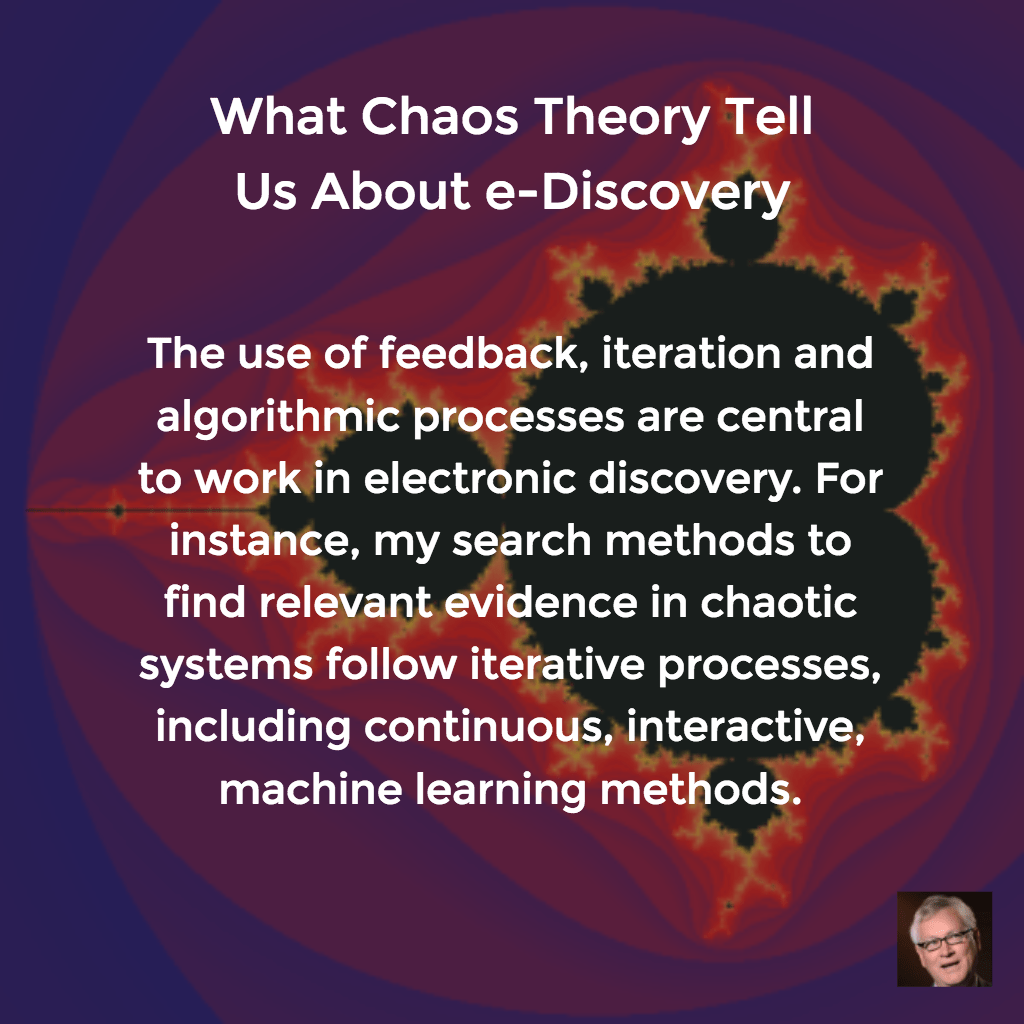ARCHIVED CONTENT
You are viewing ARCHIVED CONTENT released online between 1 April 2010 and 24 August 2018 or content that has been selectively archived and is no longer active. Content in this archive is NOT UPDATED, and links may not function.Extract from an article by Ralph Losey
The use of feedback, iteration and algorithmic processes are central to work in electronic discovery. For instance, my search methods to find relevant evidence in chaotic systems follow iterative processes, including continuous, interactive, machine learning methods. I use these methods to find hidden patterns in the otherwise chaotic data. An overview of the methods I use in legal search is summarized in the following chart. As you can see, steps four, five and six iterate. These are the steps where human computer interactions take place.
My methods place heavy reliance on these steps and on human-computer interaction, which I call a Hybrid process. Like Maura Grossman and Gordon Cormack, I rely heavily on high-ranking documents in this Hybrid process. The primary difference in our methods is that I do not begin to place a heavy reliance on high-ranking documents until after completing several rounds of other training methods. I call this four cylinder multimodal training. This is all part of the sixth step in the 8-step workflow chart above. The four cylinders search engines are: (1) high ranking, (2) midlevel ranking or uncertain, (3) random, and (4) multimodal (including all types of search, such as keyword) directed by humans.
Read the complete article at What Chaos Theory Tell Us About e-Discovery























